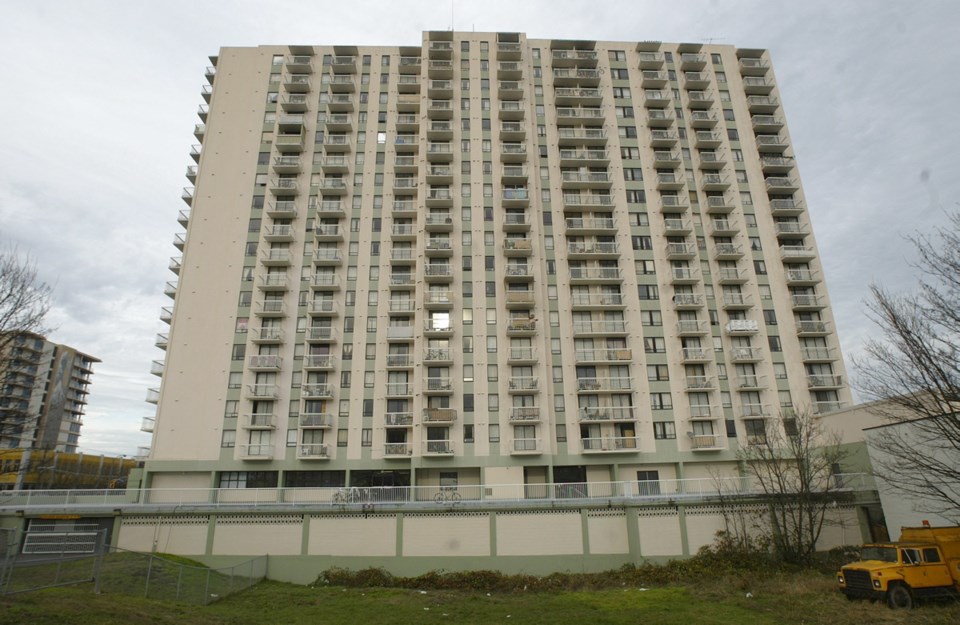A Victoria poverty advocacy group is asking the B.C. Supreme Court to review a Residential Tenancy Branch decision not to investigate the landlords of View Towers, amid complaints that tenants were forced out of their suites after a major fire in May.
Together Against Poverty Society (TAPS) has filed a petition for a judicial review, hoping that a Supreme Court judge could compel the tenancy branch to investigate Westsea Construction, which owns the highrise apartment building at 1147 Quadra St.
In September, TAPS filed a lengthy application asking the branch to investigate Westsea’s alleged “systemic contraventions” of the Residential Tenancy Act, including “providing misinformation about the state of suites and tenants’ personal property, coercing tenants into signing agreements to end their tenancies, and failing to provide tenants with access to their personal property.”
The branch turned down the request, saying that any tenants with concerns should follow the dispute-resolution process.
“What are the options for people to seek justice in this tragic situation?” asked TAPS executive director Stephen Portman. “The only option available was through the courts.”
The fire on May 15, 2014, displaced 70 people, many of whom said they were coerced into signing a mutual agreement to end tenancy, despite the fact that there was no damage to their suites.
Many also wondered why displaced tenants weren’t offered one of the building’s dozens of undamaged vacant suites.
Poverty advocates and local and provincial politicians raised fears about “renovictions,” in which longtime, low-income renters are forced out so that landlords can upgrade the suites and increase the rent.
Two tenants who filed complaints with the Residential Tenancy Branch about not being allowed to retrieve their belongings from their suites were eventually given access by the landlord.
But Portman said there were many more displaced tenants — including some who are marginalized or struggling with poverty or mental illness — who don’t have the resources to file a formal complaint with the branch.
TAPS’s judicial review argues that sections of the Residential Tenancy Act allow the branch to launch an investigation regardless of the outcome of an individual dispute resolution.
The View Towers case, Portman said, is a prime example of a case in which the branch’s investigatory powers can play an important role, “where a large number of tenants are mistreated and have difficulty individually accessing rights.”
Westsea Construction could not be reached for comment.
The Vancouver-based B.C. Public Interest Advocacy Centre is representing TAPS in the judicial review.
“We’ll make every effort to reach out to those displaced tenants and to the community to let them know this hasn’t gone away and that we’re pursuing this as much as we possibly can,” Portman said.
In its history, the Residential Tenancy Branch has only launched one investigation into a landlord.
Surrey landlord Gurdyal Singh Sahota was fined a record $115,000, but the fines were waived in 2012 after Sahota agreed to meet several conditions.



